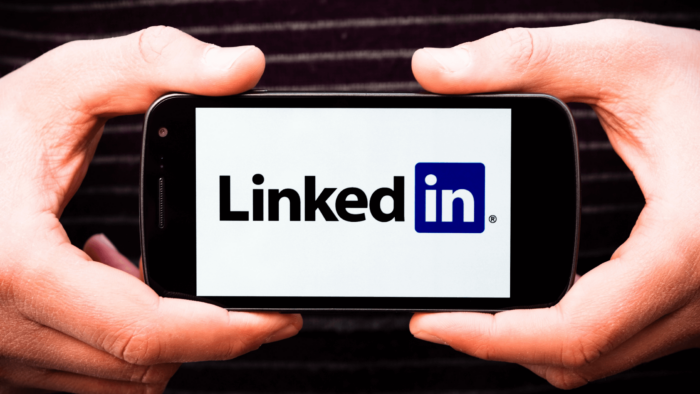Have you ever considered alternatives to LinkedIn?
While LinkedIn is considered the go-to platform for professional networking, that doesn’t mean there aren’t some great alternatives.
In fact, there are several options that can be just as useful – if not more so – depending on your niche and needs!
Let’s take a look at 7 of the best alternatives to LinkedIn so you can add some variety to your professional networking pursuits.
7 Alternatives to LinkedIn
1. AngelList

It’s a great place for startups and investors to find each other and make deals, and an even better place for these startups to find talent who can help them grow their business. So, if you are looking for a job at a startup or want to invest in one, AngelList is the site for you.
Although it’s a relatively niche alternative to LinkedIn, it still boasts over 8 million registered users and has connected over 6 million investors and job-seekers with fast-growing companies.
Pros of AngelList
- Large user base (for a niche platform).
- Excellent for investors or job seekers looking to connect with startups.
- Prime choice for early-stage companies looking to grow their businesses faster.
- Resource-packed blog content written by actual AngelList users.
(Check out their value-packed article with 15 ways to manage workplace stress)
Cons of AngelList
- Not as well-known as LinkedIn.
- Focuses on a niche audience (startups), so more established companies may have issues making new connections.
- More geared toward making deals than general networking.
Who Should Use AngelList?
- Startups and investors looking for each other.
- Early-stage companies trying to grow quickly.
- Talent on the hunt for their next great opportunity.
2. Meetup
Meetup is a great site for finding like-minded people to connect with in your area.
After you sign up and select your interests, Meetup notifies you if there’s an event in your area. You can also search for local events and see if there’s something that jives with you. And if you can’t find anything, you can always plan your own event!
Meetup has over 49 million members in 190 countries, so there’s a good chance you’ll find some like-minded people in your locale with whom you chat about hobbies and professional interests.
Although Meetup positions itself as a platform for meeting people locally, with the rise in remote work, they also promote virtual events.
Pros of Meetup
- Very large user base.
- Focuses on local groups, so it’s easier to find people in your area who share your interests.
- Hosts a variety of events (talks, workshops, mixers) that can be great for networking.
Cons of Meetup
- Can be difficult to find specific groups or events that interest you.
- If you live in a less populated region, it may be difficult to connect with people locally.
Who Should Use Meetup
- People looking to connect with others in their local area who share their interests.
- Businesses looking to scope out local talent.
- Business owners on the hunt for B2B networking opportunities.
3. Facebook Groups
Although Facebook isn’t specifically geared toward professional networking, it’s still a great place to make connections with other industry professionals
As a global platform with billions of active users, there’s a Facebook group out there catering to every profession and interest imaginable. You can also create your own group if you can’t find one that meets your needs.
You can find these groups using Facebook’s search function and entering keywords related to your profession or interests, like “content marketing entrepreneurship” or by joining industry-specific groups that your friends and colleagues are already a part of.
Pros of Facebook Groups
- Massive user base.
- Niche groups are easy-to-find and join.
- You can create your own group if you can’t find one that meets your needs.
Cons of Facebook Groups
- Groups can be noisy and unfocused, making it difficult to network effectively.
- Not everyone is interested in professional networking, so you may find yourself in a group with people who are not looking to make connections.
Who Should Use Facebook Groups?
- Businesses who want to create their own group and target potential talent (or customers).
- People looking for a more “social” professional networking experience.
4. Zerply
Zerply is like LinkedIn for creatives.
Specifically, it’s a platform that connects creative professionals like artists, animators and programmers with film, TV, video game and entertainment companies.
With Zerply, users can post profiles and portfolios of their work, and employers can post jobs and network with job-seekers on the platform.
Zerply also comes with in-platform employer tools for planning and organizing creative productions.
Pros of Zerply
- Specifically designed for creative professionals.
- Free for job-seekers.
- Offers in-platform tools for production planning.
Cons of Zerply
- Smaller user base than some other alternatives.
- Less relevant for businesses not in the creative industry.
- Employer accounts require a subscription.
Who Should Use Zerply?
- Creatives looking to showcase their work and connect with potential employers.
- Employers in the creative industry are looking to find talent.
5. Xing
Xing is a German-based professional networking platform that has over 20 million users and is growing rapidly.
Xing is similar to LinkedIn in that it allows users to create profiles to join groups with other industry professionals, catch up on industry news and topics, as well as post jobs, search for jobs and research company profiles.
It’s free to join, however, many of the platform’s features are reserved for premium members.
Pros of Xing
- Steadily growing user base.
- Available in 16 languages.
- Interface and functionality are similar to LinkedIn.
Cons of Xing
- Useful features require paid memberships.
- Not very popular outside of Europe.
Who Should Use Xing?
- Europeans will benefit from using Xing as there’s less competition compared to LinkedIn.
- Anyone looking to network with European companies with the hopes of working overseas (if they’re in the US).
6. Reddit
Yes, Reddit. Believe it or not, Reddit is an excellent alternative to LinkedIn because of the sheer number of professional and industry-specific subreddits available.
Now, there are two main ways to use Reddit for professional networking:
- Find relevant subreddits and participate in the discussions.
- Use Reddit’s search feature to find people who work at specific companies or in specific industries.
Now, let’s be perfectly clear here:
Reddit can be an unforgiving corner of the internet.
Despite subreddits being moderated, Redditors can be brutally honest with their comments.
Also, most subreddits do not allow self-promotion. So, if you want to network, you’ll need to bring value to the community by answering questions and providing your own expertise.
But don’t let any of that scare you. Reddit is an incredibly diverse and vibrant community with millions of users and can be a great place to make connections, as long as you follow the rules and bring something valuable to the discussion.
Pros of Reddit
- Over 430 million monthly active users.
- Numerous industry-specific subreddits, some with millions of members.
Cons of Reddit
- A brutal place if you don’t understand a subreddit’s community standard (i.e. its “redditquette”)
- Explicit networking and self-promotion are frowned upon — you need to build connections showing your worth.
Who Should Use Reddit?
- People who are looking for a more informal professional networking experience and who also have time to invest in participating in online discussions.
7. Jobcase
Jobcase is like the potent fusion of a social networking site and a job board.
When Jobcase hit the scene in 2009 it was originally a job board site. Then in 2015, the company repositioned as a “social media platform dedicated to empowering and advocating for the world’s workers”.
Jobcase’s prior expertise as a job site, and its recent foray into professional networking, have made it a fierce LinkedIn alternative. And with 110 million users, who can possibly argue with that?
Now, as a platform, Jobcase offers a number of features for job-seekers, like the ability to create detailed online resumes, search for jobs, research companies and network with other job-seekers and employers.
And employers can use Jobcase to find potential employees, post jobs and network with other companies.
Pros of Jobcase
- Huge user base of 110 million users
- Focuses on jobs for wage-earners and blue-collar workers
- Robust job board.
Cons of Jobcase
- Not as popular as LinkedIn.
- Functionality isn’t as advanced as LinkedIn.
Who Should Use Jobcase?
- Anyone that’s looking for a simpler, less “corporate” version of LinkedIn.
- Businesses looking to connect with blue-collar workers and wage-earners.
What Alternatives to LinkedIn Will You Try?
So there you have it: 7 of the best alternatives to LinkedIn for 2023. Which one are you eager to try?
Are you looking to connect with people in your community with Meetup?
Or maybe you’re looking to see what’s new in the startup world with AngelList.
Let me know in a comment below!
Ready to really grow your business and your impact? Then, join me for the ONLY business-building event where you’ll leave with a shorter to-do list than when you arrived!
I’ll be sharing exactly how to hone in on what to say, do and sell next in order to grow your business — with proven strategies that I’ve spent over a decade testing.
In fact, this is the ELEVENTH annual Live Your Message LIVE, and many students come back year after year — because the strategies keep working!
We’ll spend 3 days together virtually, working on your business and YOUR unique growth blueprint. As my premium business growth and networking event, tickets routinely go for $1,000 since the information is that valuable.
But today, your ticket is just $147! Grab your seat here.
You’ll ALSO receive your very own copy of my valuable Message to Money Pathway — your unique, highly-customized template that will guide you by the hand to your 6 or 7-figure business (regardless of where you’re starting from).
You’ll Zoom in “overwhelmed” and Zoom out with an exact roadmap for what to say, do and sell next to grow your business in 2023. Here’s the link again to grab your ticket.
See you virtually March 3-5, 2023 🙂
Love it? Hate it? Let me know...
-
What about Circle.so
Brendon recommended it and he is an investor there.
Greetings
Gerhard
-
Thanks for the suggestion! We’ll check it out 🙂
-
-
Linkedin deleted my profile as I was trying to connect with too many ppl. So happy for this information
-
That’s too bad, Christine! So glad you found value from Marisa’s post 🙂
-
-
I published on LinkedIn recruiter company from Switzerland IOTA that they try to cheat me 1 day before mobilization that i refused low unprofessional behavior and LinkedIn blocked me. To show how low level of professional platform they are.


































Leave a Comment